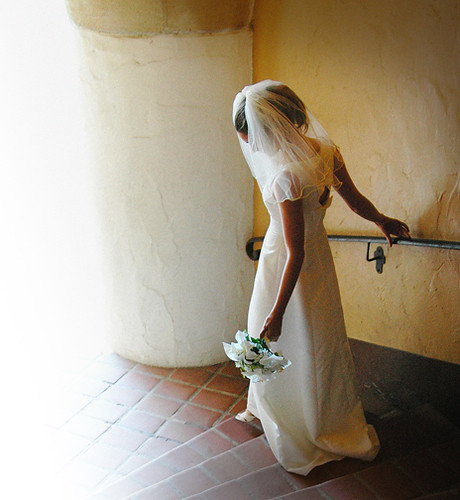
Photo by Tostado Photo
Every Friday my syndicated column appears in a bunch of newspapers in southeastern Ontario. Here's this week's!
Did you follow The Plan? You know the one; our parents drilled it into us. Get an education, get a job, get married, have a baby. And do it in that order! No marriage before a diploma, no babies before a job, but most of all, no babies before marriage.
According to a new Time/Pew study, 39% of us are giving up on the Plan because we think marriage is superfluous. Yet statisticians will tell us that The Plan makes sense. Those who follow it are far more likely to escape poverty, be personally happy, and raise kids who are well-adjusted. But here’s the even bigger kicker: they’re far less likely to get divorced.
Why does this happen? Kay Hymowitz, author of The Marriage Gap, has found that while divorce rates may be high today, they tend to be high for a certain subset of the population: those who didn’t follow The Plan. Those who wait until they’re married to have children, and those who get their education first, tend to make it a priority to stay married.
At face value, this seems counterintuitive. It’s the educated women, after all, who don’t need a husband to support a child; they can afford to raise one on their own. Yet these women are waiting for marriage to have children, while other women don’t tend to in the same numbers. And when the latter group does marry, those marriages tend to be more fragile.
Essentially, Hymowitz argues, we are dealing with two different cultures: those that still believe in The Plan our grandmothers would have recognized, and those who think it’s archaic. Those who accept The Plan tend to be careful sexually, because the thing that would most upset their goals would be to get pregnant without being married.
On the other hand, if marriage really is considered superfluous, then the order in which you do things suddenly doesn’t matter. If you’re not waiting for the right spouse, but instead you’re more interested in finding a guy now, then you may enter into relationships which aren’t stable or healthy, and you’re more likely to end up pregnant. And this can easily derail many educational plans—and even romantic plans.
Sociologist Charles Murray crunched the numbers, and found that among American university educated women in families making more than $100,000 a year, the rate of illegitimacy was only about 2%. They’re still living in Leave it to Beaver days. Go down to the working class, who have a high school education but earn less than $60,000 a year in family income, and the illegitimacy rate is up to 10%. But among the underclass, who never graduated high school? It’s 45%. And that’s not because those girls got dropped out because they were pregnant; most of those pregnancies happened long after they left school. And since single parenthood is one of the highest indicators for childhood poverty and abuse, that’s a problem.
Not only this, but if choices around marriage and parenting really are primarily cultural ones, then these mini-cultures are likely to be replicated. People who believe in The Plan—even if they themselves made mistakes in the past—will raise kids who follow it. People who don’t believe in it will raise kids who likely won’t follow it. And it will be increasingly difficult to cross over into these two groups. Rising out of poverty, then, is not just an educational issue; it’s also a cultural one.
Our schools preach that students should get an education, but maybe they need to start talking about marriage, too. Wait until you’re married to have kids, and you are dramatically less likely to end up poor, more likely to be in stable marriages, and more likely to be happy in the long run. We need to get back to The Plan. Marriage is good for you. It’s good for your kids. Let’s stop pretending it doesn’t matter, and maybe we’d be the land of opportunity once again.
Don't miss a Reality Check! Sign up to receive it FREE in your inbox every week!Labels: columns, divorce, marriage, social issues, teen pregnancy, teens |
Great post! I really never connected that the cycle of poverty is not only one of education but also of culture. Since my husband is from that culture, I should have made the connection. I see all his extended family following the same path, babies before marriage, then divorce, then more babies...it's sad to think one is escaping and then seeing them end up just like their parents.